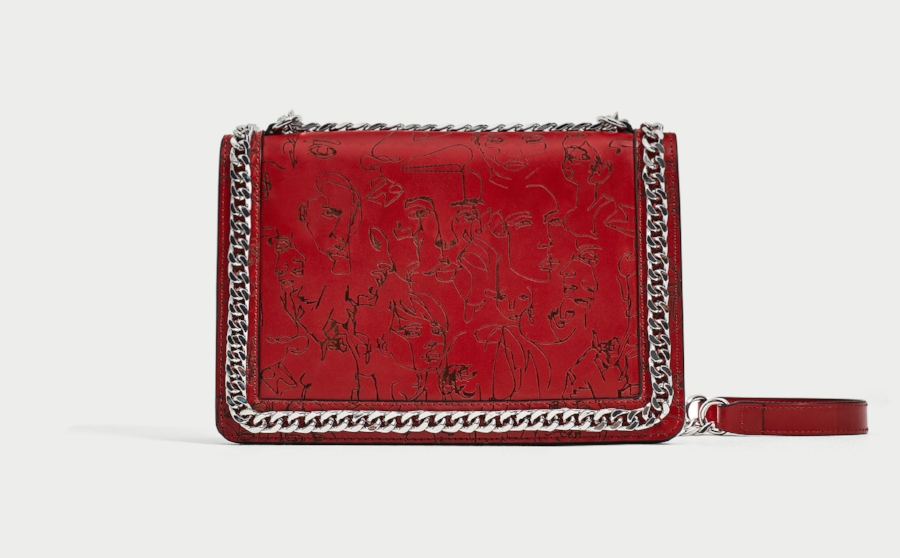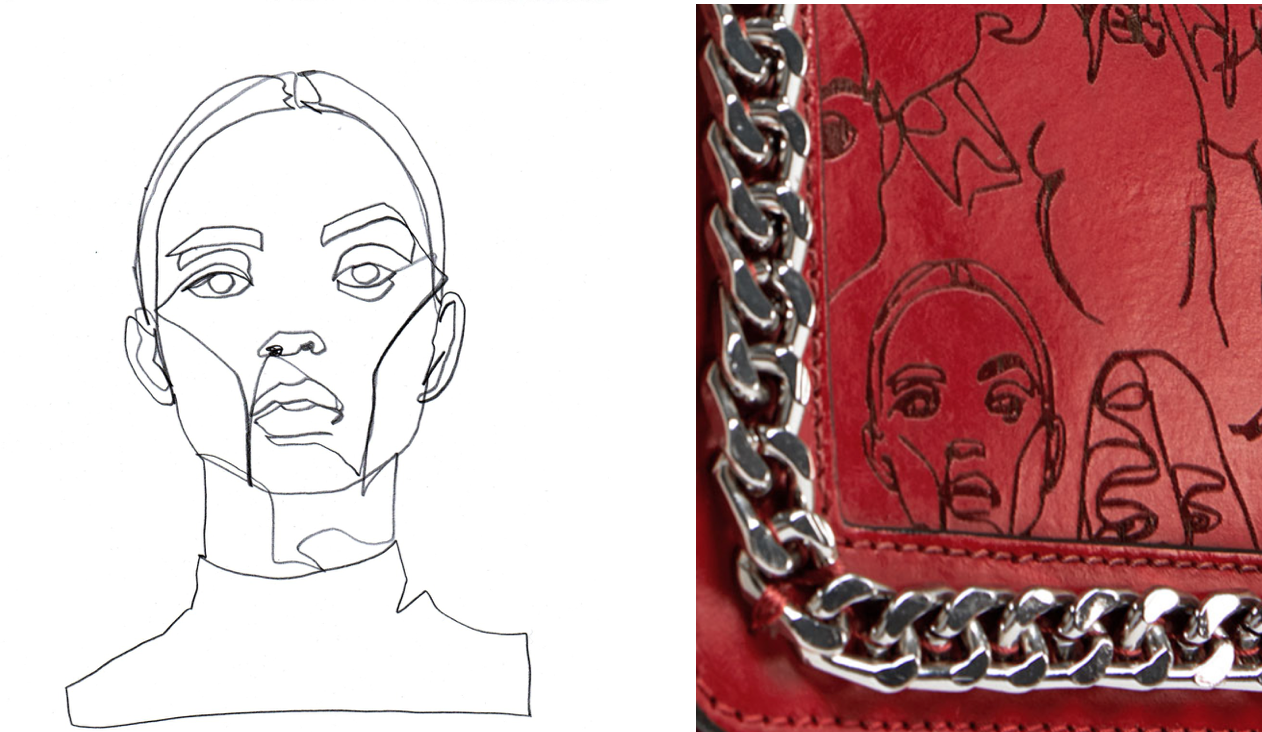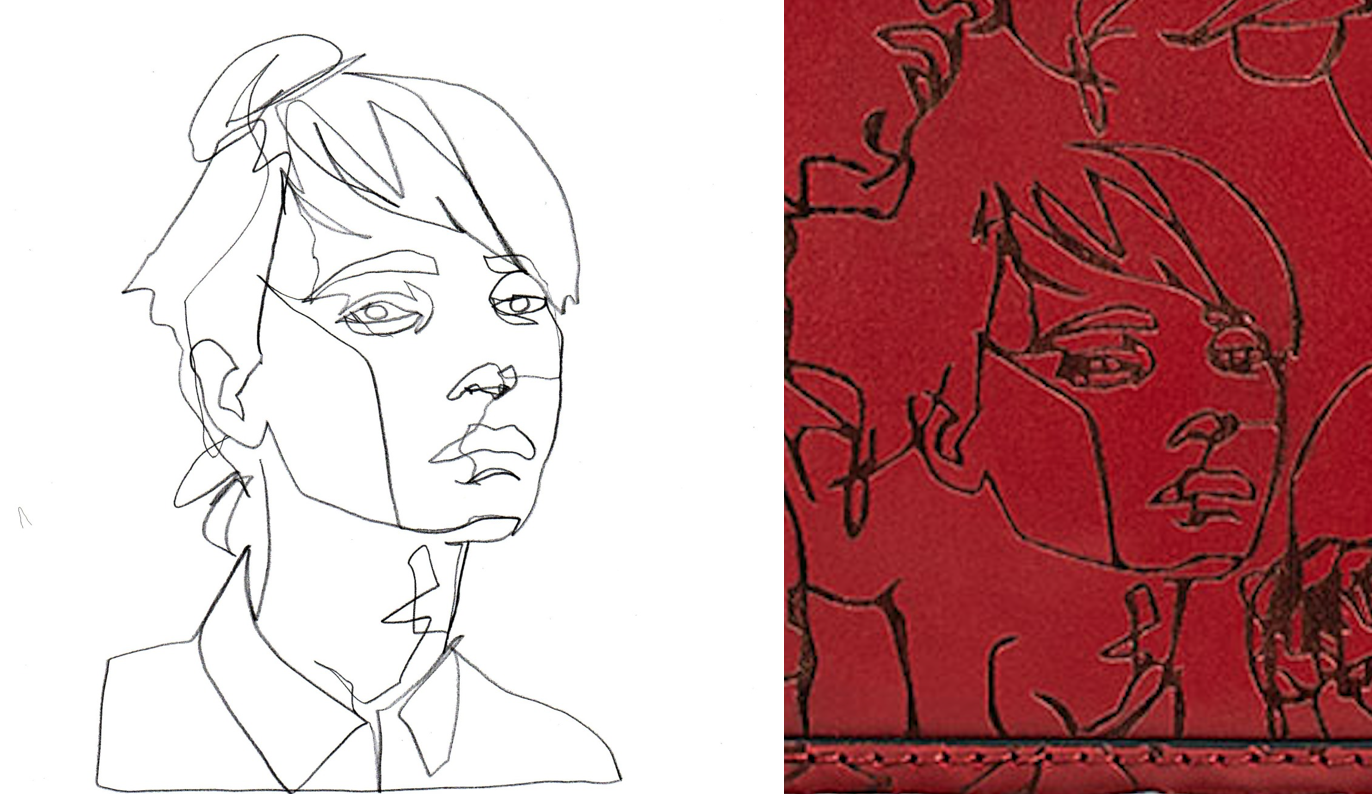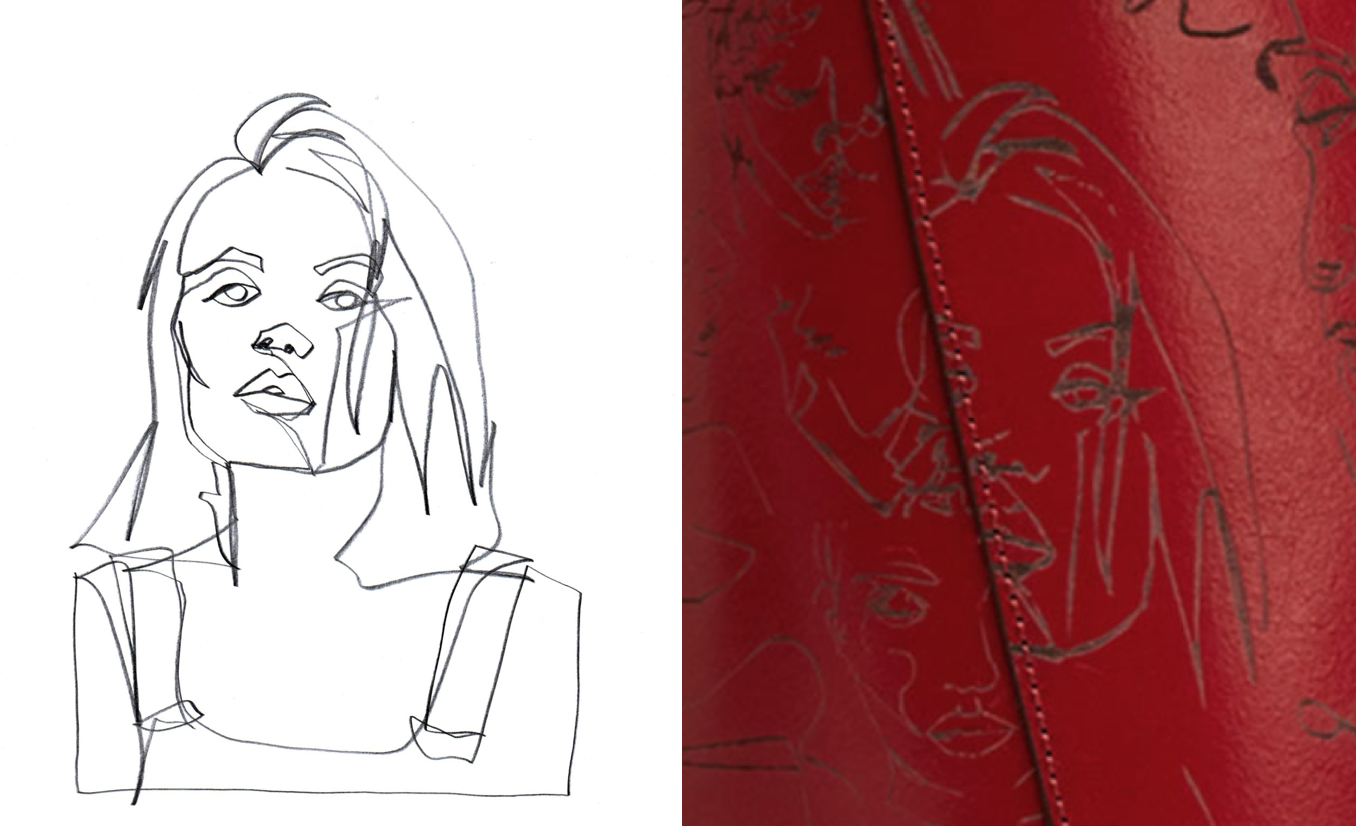
image: Zara
“They don’t care about what is right and decent,” artist Boris Schmitz says of Zara. The 24-year old just discovered – via a handful of his Instagram followers – that the Spanish fast fashion giant is selling not one but two bags bearing three of his original sketches. “They never reached out to me,” he confirms.
Known for his “stark line art” and his ever-growing “Gaze” series – which he started in 2010 as a comment on “the individual in these modern social media saturated times” – Schmitz says Zara did not approach him before using three separate continuous line drawings of his for its Laser Cut Leather Tote Bag and its Laser Cut Leather Crossbody Bag, both of which are currently for sale on Zara’s website for $119.

Schmitz’s sketch (left) & a portion of Zara’s bag (right)
While most fast fashion copying is perfect legally in the U.S., namely due to the way copyright law is structured (more about that here), this instance almost certainly runs afoul of the law, copyright law, to be exact. As the copyright holder for each of the individual sketches – which he created in July 2014, and October and November 2015, respectively – Schmitz, who is currently finishing his Master’s degree at the University of Cologne, has the exclusive right to reproduce these drawings or license them to others, if he so chooses.
By not seeking Schmitz’s authorization before incorporating his drawings into the “laser-cut embossing detail” of its bags, and then making the bags available for sale, Zara could have set itself up for an open-and-shut case of copyright infringement (since the recreation of copyright-protected imagery is, in fact, protected by law), should Schmitz decide to take Zara to court.
Speaking exclusively to TFL, Schmitz says that he has not yet decided what course of action he will take. He is still processing the copying of his work, which he suspects that Zara’s team must have seen on Tumblr. “I was quite dumbfounded this morning when I woke up and saw [the bags],” says Schmitz. “I knew that Zara did this ago a year ago with some creators from Los Angeles. Zara is known for that in my community.”

Schmitz’s sketch (left) & a portion of Zara’s bag (right)
Schmitz elaborated, saying that he is disappointed. “I think one would expect a company like [Zara], which has so much power, to strive to pave the way for young creators and work WITH THEM.”
However, that does not appear to be the case, at least not this time around (or in other recent instances, either, to be frank). Schmitz says he is not the only one who has been targeted by Zara in connection with these specific bags. “There are also drawings on the bag that I know from Tumblr. One of the other creators is Annes Bil, a young illustrator from Turkey.”
French illustrator Christophe Louis Quibe – whose work has been widely copied as of late – told TFL that at least four of his drawings are also incorporated into Zara’s bags, without his authorization, of course. He opted not to comment until he consults with his legal counsel.
“My guess is it [Zara’s team] went to Tumblr for inspiration and took what they liked,” posits Schmitz. “That does not make it right, though. They have to ask for permission, compensate and credit the original artists. Especially since they are such a big corporation.” Zara’s parent company Inditex is the largest apparel company in the world; its founder and chairman Amancio Ortega occupies the number two spot on the “World’s Richest” list.
Unfortunately, Schmitz says, “In the end it’s all about profit and money, I think … and not about giving credit where credit is due.”

Schmitz’s sketch (left) & a portion of Zara’s bag (right)
This is hardly the first case of an artist – or designer – coming forth to call foul on Zara. Last summer, for instance, indie artist Tuesday Bassen made headlines after publicly call out the Spanish fast fashion giant. Bassen shed light on an array of instances of allegedly unauthorized use of her copyright-protected work, as well as the work of others, most of which came in the form of original pins that Zara purportedly copied and affixed to a number of styles of garments.
Of such claims of copying, Zara’s parent company stated, “Inditex respects any third party’s creativity and takes all claims concerning third party intellectual property rights very seriously,” they continued. They added: “Inditex has more than 600 designers in house that create more than 50,000 designs a year, it has the highest respect towards each individual’s creativity.”










